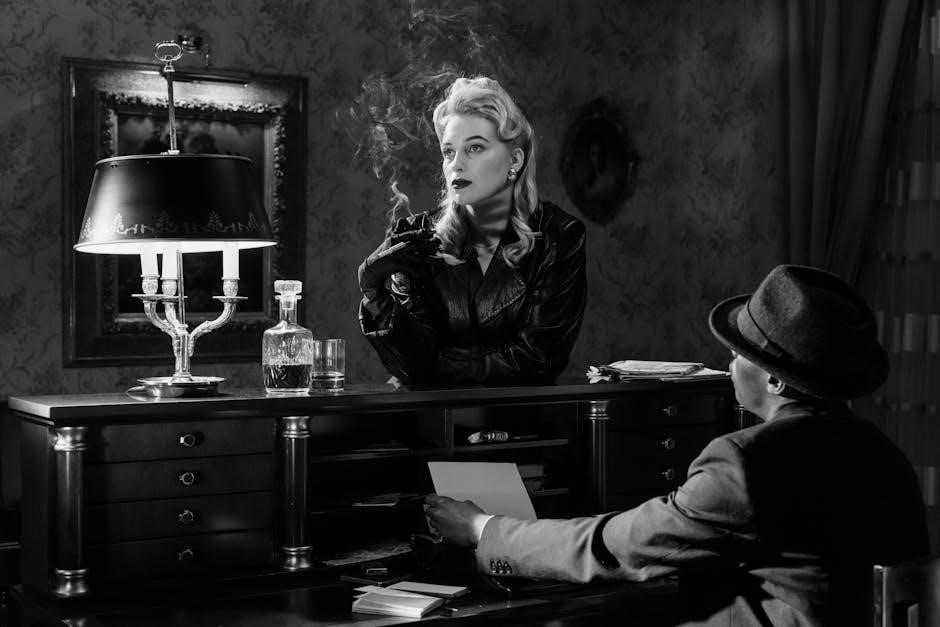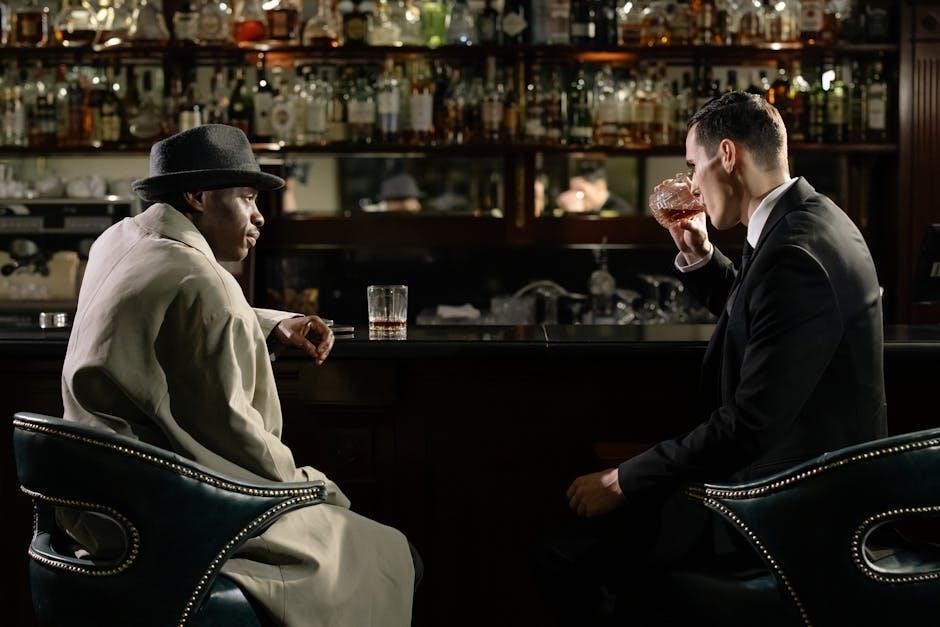
colorado jury instructions criminal
Colorado Criminal Jury Instructions are standardized legal guidelines provided to juries in criminal cases. Created by the Colorado Supreme Court Committee, these instructions ensure clarity and impartiality, aiding jurors in understanding the law and their role in delivering justice.
1.1 Purpose and Structure of Jury Instructions
The purpose of Colorado Criminal Jury Instructions is to provide clear, accurate, and unbiased legal standards for jurors. Structured to ensure clarity, these instructions outline the law, elements of offenses, and burdens of proof. They are organized into sections, covering general principles, specific crimes, and definitions, ensuring jurors understand their role and the legal framework guiding their decisions in criminal cases.
1.2 Role of the Colorado Supreme Court Committee on Criminal Jury Instructions
The Colorado Supreme Court Committee on Criminal Jury Instructions is responsible for drafting, reviewing, and updating jury instructions to ensure they reflect current law. Comprising legal experts, the committee ensures instructions are neutral, accurate, and comprehensive. Their work is crucial for maintaining consistency and fairness in criminal trials, providing jurors with clear legal guidance to apply during deliberations.

Key Components of Colorado Criminal Jury Instructions
Colorado Criminal Jury Instructions outline the burden of proof, presumptions, and specific instructions for felonies and misdemeanors, ensuring clarity on legal standards and definitions.

2.1 Burden of Proof and Presumptions in Criminal Cases
The Colorado Criminal Jury Instructions emphasize that the prosecution must prove guilt beyond a reasonable doubt. This is the highest legal standard, ensuring the accused is not wrongly convicted. Presumptions, such as the presumption of innocence, are also clearly defined. These instructions guide jurors to understand the prosecution’s responsibility and the defendant’s rights, ensuring a fair trial by clarifying these critical legal principles.
2.2 Specific Instructions for Felonies and Misdemeanors
Colorado Criminal Jury Instructions differentiate between felonies and misdemeanors, providing distinct guidance for each. Felony instructions often emphasize greater culpability and severe penalties, requiring jurors to carefully weigh evidence of intent and severity. Misdemeanor instructions focus on lesser offenses, outlining specific elements and potential defenses. These tailored instructions ensure jurors understand the unique legal standards and evidentiary requirements for each type of crime, aiding in fair and accurate verdicts.

Legal Standards and Definitions
Colorado Criminal Jury Instructions outline legal standards and precise definitions to ensure jurors understand key terms and concepts. These definitions, crafted by legal experts, clarify elements of crimes, burdens of proof, and essential legal terminology, providing a clear framework for evaluating evidence and reaching just verdicts in criminal cases.

3.1 Elements of Criminal Offenses
Colorado Criminal Jury Instructions detail the specific elements of criminal offenses, ensuring jurors understand what prosecutors must prove. Each offense is broken down into essential components, such as act, intent, and causation, providing clarity and precision. These elements, derived from Colorado statutes and case law, guide jurors in determining whether the prosecution has met the burden of proof beyond a reasonable doubt, ensuring a fair and just trial process.
3.2 Definitions of Key Legal Terms
Colorado Criminal Jury Instructions provide clear definitions of key legal terms to ensure jurors understand complex concepts. Terms like “reasonable doubt,” “intent,” and “malice” are defined to guide jurors in applying the law accurately. These definitions, grounded in Colorado statutes and case law, help jurors grasp legal standards, ensuring a fair evaluation of evidence and a just verdict in criminal cases.

Recent Updates and Revisions
The Colorado Supreme Court Committee regularly updates jury instructions to reflect legislative changes and legal precedents, ensuring accuracy and clarity in criminal cases.
4.1 Changes in Jury Instruction Laws
The Colorado Supreme Court Committee revises jury instructions to align with legislative changes and legal precedents. These updates ensure clarity, accuracy, and fairness in criminal proceedings. Recent modifications reflect evolving laws, such as new definitions of criminal offenses and updated sentencing guidelines; The Committee reviews and refines instructions annually to maintain relevance and consistency, ensuring jurors receive clear guidance to apply the law correctly in criminal cases.
4.2 Impact of Legislative Updates on Jury Instructions
Legislative updates significantly influence Colorado’s criminal jury instructions, ensuring they reflect current laws and societal norms. Changes in statutes often require revisions to instructions, impacting how jurors interpret evidence and apply the law. These updates help maintain the integrity of trials, providing clear guidelines for jurors. The Committee ensures instructions are consistent with new laws, preventing confusion and ensuring fair trials. This process keeps the judicial system responsive to legal developments.

Practical Application in Trials
Judges deliver Colorado Criminal Jury Instructions to guide jurors on applicable laws and procedures. These instructions clarify legal standards, ensuring jurors understand their role in reaching fair verdicts.
5.1 How Judges and Attorneys Use Jury Instructions
Judges use Colorado Criminal Jury Instructions to explain relevant laws and procedures to jurors. Attorneys propose specific instructions to emphasize key legal points. Judges ensure instructions are accurate and clear, guiding jurors on how to apply the law to the evidence. This collaborative process helps jurors understand their role and the legal standards they must follow to reach a fair verdict.
5.2 Curative Instructions and Their Role in Trials
Curative instructions are given by judges to correct errors or misunderstandings during a trial. They clarify legal points or evidence, ensuring jurors focus on relevant information. These instructions address issues like improper arguments or inadmissible evidence, helping jurors apply the law accurately. While curative instructions cannot erase all biases, they are a critical tool to maintain trial integrity and ensure a fair evaluation of the case based on the law.

Resources and References
Colorado Criminal Jury Instructions are accessible online through the Colorado Supreme Court Committee’s website. Additional resources include legal databases like Westlaw and court-provided guides for attorneys and judges.
6.1 Accessing Colorado Jury Instructions Online
Colorado Criminal Jury Instructions are readily accessible online through the Colorado Supreme Court Committee’s official website. Additionally, legal databases such as Westlaw and LexisNexis provide comprehensive access to these instructions. The instructions are updated annually to reflect changes in the law and are available for download in PDF format. Users can also search for specific instructions using keywords or by browsing through categorized sections, making it convenient for legal professionals to reference them efficiently.
6.2 Additional Materials for Legal Professionals
Legal professionals can access supplementary resources, including practice guides, webinars, and annotated versions of Colorado Criminal Jury Instructions. These materials are available through legal databases like Westlaw and LexisNexis, offering in-depth analysis and practical insights. Additionally, the Colorado Supreme Court Committee provides updates, summaries, and reference manuals to help professionals stay informed about changes in criminal law and effectively apply jury instructions in court proceedings.

Challenges and Controversies
Colorado Criminal Jury Instructions face challenges, including complexities in understanding legal jargon and controversies over instruction clarity. These issues sometimes lead to curative instructions and calls for reform.
7.1 Common Misunderstandings of Jury Instructions
Jurors often struggle with the complexity of Colorado Criminal Jury Instructions, particularly legal jargon and nuanced distinctions between similar offenses. Misunderstandings arise from dense language and the reliance on curative instructions to clarify errors. Additionally, jurors may misinterpret key legal standards, such as burdens of proof or presumptions, leading to incorrect applications of the law during deliberations. These challenges highlight the need for clearer, more accessible instructions to ensure proper understanding and fair outcomes.
7.2 Criticisms and Debates Surrounding Jury Instructions
Critics argue that Colorado Criminal Jury Instructions are overly complex, making them difficult for jurors to understand. Some contend that the instructions favor prosecutors by emphasizing certain legal standards. There is also debate about the balance between clarity and legal precision, with advocates pushing for simpler language. Additionally, concerns arise about the instructions’ ability to address evolving legal issues and societal expectations, sparking discussions on reform and modernization to enhance fairness and transparency.

The Future of Colorado Jury Instructions
The future of Colorado Criminal Jury Instructions likely involves technological enhancements and reforms to improve clarity and accessibility, ensuring jurors understand complex legal concepts more effectively.
8.1 Potential Reforms and Improvements
The Colorado Supreme Court Committee on Criminal Jury Instructions may introduce reforms to enhance clarity and accessibility. Potential improvements include simplifying legal language, incorporating feedback from legal professionals, and updating instructions to reflect evolving laws. Digital platforms could also be utilized to make instructions more accessible. These reforms aim to ensure jurors understand their role and the law more effectively, fostering fair and informed decision-making in criminal cases.
8.2 Technology’s Role in Modernizing Jury Instructions
Technology is transforming Colorado criminal jury instructions by enhancing accessibility and clarity. Digital platforms now offer searchable databases, allowing legal professionals to quickly locate specific instructions. Interactive features, such as hyperlinked references and real-time updates, ensure accuracy and efficiency. These advancements streamline the legal process, making it easier for judges and attorneys to prepare and present instructions, ultimately improving the administration of justice in criminal trials.